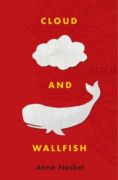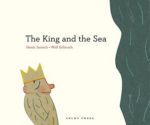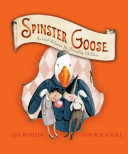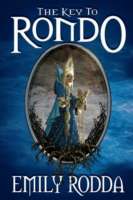
This slapstick postmodern tale is also a profound statement about dictatorship and peaceful revolution, from an award-winning author/illustrator team.
Featured in WOW Review Volume IX, Issue 4.

This slapstick postmodern tale is also a profound statement about dictatorship and peaceful revolution, from an award-winning author/illustrator team.
Featured in WOW Review Volume IX, Issue 4.

Noah Keller has a pretty normal life, until one wild afternoon when his parents pick him up from school and head straight for the airport, telling him on the ride that his name isn’t really Noah and he didn’t really just turn eleven in March. And he can’t even ask them why not because of his Astonishing Stutter, but because asking questions is against the newly instated rules.

“Buzz off,” said the king, shooing the bee from his flower. “Don’t you know I’m the king?” “And I’m the queen,” said the bee, stinging the king’s nose. These stunningly illustrated, ultra-short stories are seemingly simple but ultimately profound tales. In each story, the king has an encounter which he tries to rule over. But of course the rain doesn’t stop just because a king orders it, and tired eyelids can be much stronger than a king’s will. The king sees that his power has limits; the world is diverse and much of it operates under its own rules.
In this breathtaking companion to the award-winning Grandfather Gandhi, Arun Gandhi, with Bethany Hegedus, tells a poignant, personal story of the damage of wastefulness, gorgeuously illustrated by Evan Turk. At Grandfather Gandhi’s service village, each day is filled, from sunrise to sunset, with work that is done for the good of all. The villagers vow to live simply and non-violently. Arun Gandhi tries very hard to follow these vows, but he struggles with one of the most important rules: not to waste. How can throwing away a worn-down pencil hurt anyone? How can wastefulness lead to violence? With the help of his grandfather, Arun learns how every wasteful act, no matter how small, affects others. And in time he comes to understand the truth of his grandfather’s words: “Be the change you wish to see in the world.”

Some children are simply too naughty for Mother Goose to handle. Luckily her sister Spinster Goose knows just how to deal with these uncouth urchins. Her school is home to some world-class troublemakers: they bite and pinch, they talk back and fight, and they eat chalk! But brats beware, this isn’t just any school, and Spinster isn’t your average goose. Her curious methods will rid these students of their horrendous behaviors. Fans of Mother Goose will delight in these devilishly twisted alternatives to classic rhymes.

There are three rules to the old painted, music box: Wind the box three times only. Never shut the box when the music is playing. Never move the box before the music stops. Leo wouldn’t dream of breaking these rules, but does his stubborn cousin Mimi listen? She winds the box four times — and suddenly the paintings on its side come to life and a powerful witch is released. Now its up to Leo and Mimi to stop the witch, if only they can find the key to the music box — and the magical world it controls.

Jade Blossom can never go beyond her family’s Inner court. Every girl from a good family in seventeenth-century Korea must stay at home and learn to sew and work in the kitchen to prepare her for her future life in her husband’s Inner Court. Jade has other interests. She longs to take trips to the mountains and the marketplace. Jade won’t stop thinking about the world beyond the high walls of her home.
No one is allowed on Annie’s chair. Her dog breaks the rule.